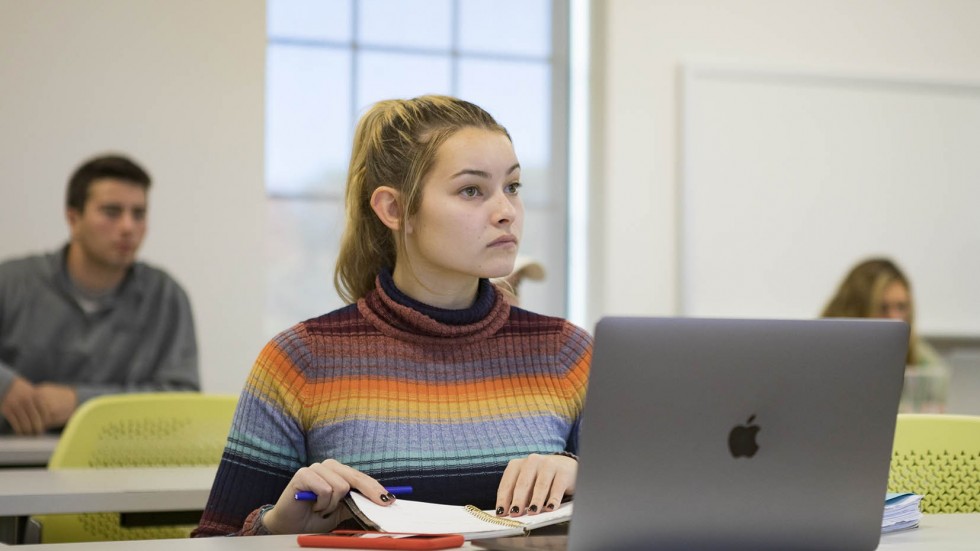Dual Enrollment Program
An opportunity for rising juniors and seniors at a select group of Catholic high schools in the region to earn college credits.
REGISTRATION AND PAYMENT DUE JUNE 15, 2023.

Stonehill’s Dual Enrollment Program is an opportunity for rising juniors and seniors at select Catholic high schools in the region to earn college-level credits prior to enrollment at Stonehill. These credits are likely transferrable to a number of other colleges and universities as well.
Students interested in applying should speak with their school counselor regarding the preregistration process or any other questions related to the program.
Application Deadline/Tuition
Tuition: $300, must be paid in full by June 15
| Terms | Application Deadlines | Semester Start Dates | Semester End Dates |
|---|---|---|---|
| Summer 2023 | June 15, 2023 | July 3, 2023 | August 4, 2023 |
| Fall 2023 | June 15, 2023 | Week of September 5, 2023 | December 21, 2023 |
| Spring 2024 | June 15, 2023 | Week of January 15, 2024 | May 10, 2024 |
Benefits
- Course credits applicable to an undergraduate degree at Stonehill and likely transferrable to a number of other colleges and universities pending their individual Dual Enrollment credit policies
- An opportunity to acclimate to the rigors of college-level curricula and explore fields of interest
- A differentiator for your college applications that indicates to admissions counselors that you are invested in your education and college-level work
- Ultimately, receipt of an official Stonehill College transcript reflecting your accomplishment and credits
Eligibility and Requirements
Application for admission into Stonehill’s Dual Enrollment Program is open to current rising juniors and seniors at participating Catholic high schools
- Eligibility to enroll in these Dual Enrollment courses is determined by the academic counseling staff at your high school.
- Upon receipt of a list of approved registrants from each high school, students will receive an email inviting them to confirm their registration and pay via a secure link. Confirmations and payments must be received by June 15.